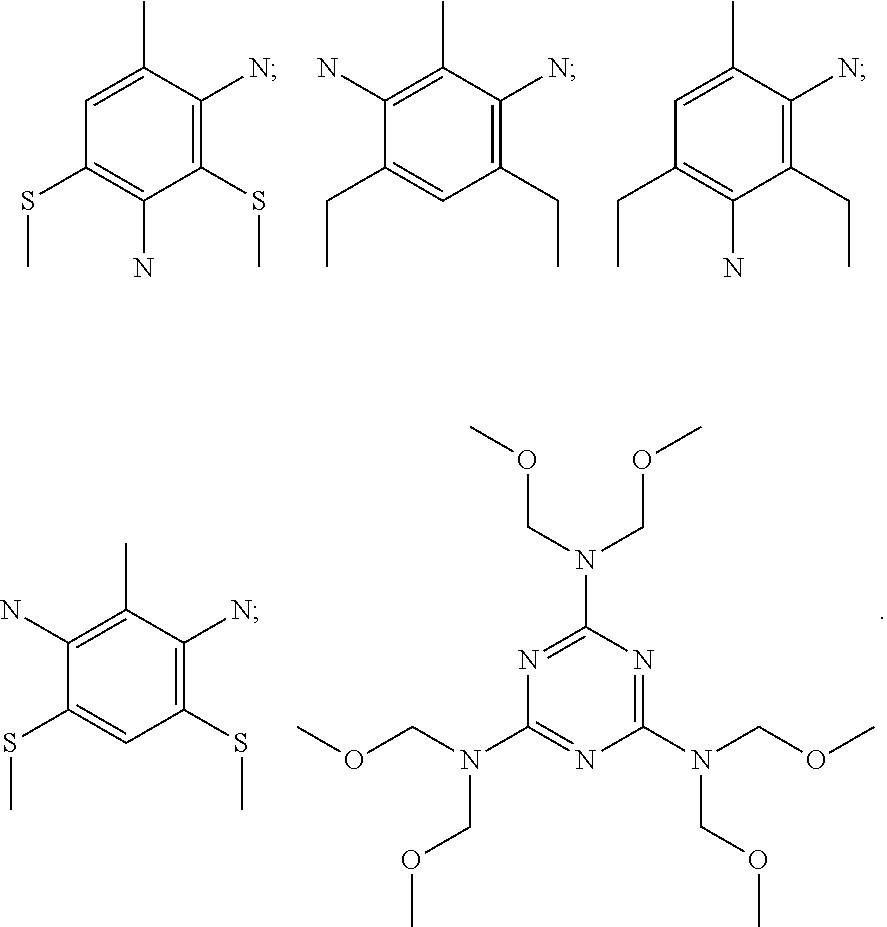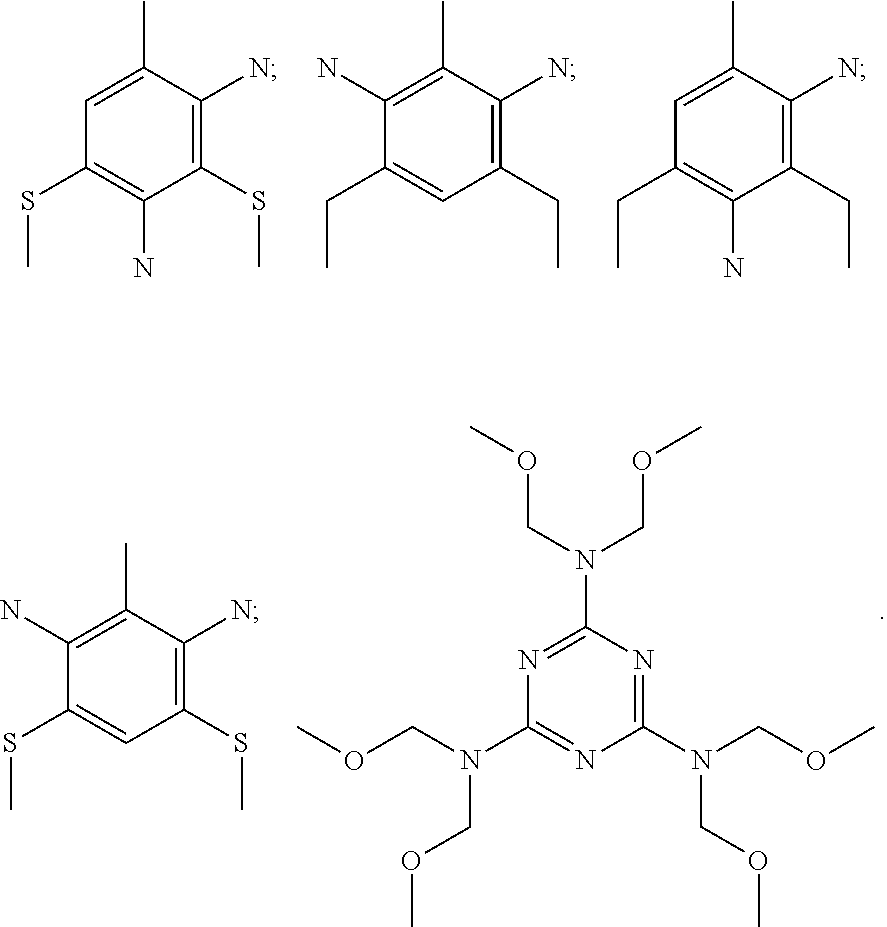Resin composition for insulation film
a technology of composition and insulation film, which is applied in the direction of synthetic resin layered products, metal layered products, domestic applications, etc., can solve the problems that the conventional materials (for example, fr-4) used in the manufacture of printed circuit boards no longer meet the demand for advanced applications, especially the requirements for high-end applications, and compromise the performance of printed circuit boards, etc., to achieve low dk and low df
- Summary
- Abstract
- Description
- Claims
- Application Information
AI Technical Summary
Benefits of technology
Problems solved by technology
Method used
Image
Examples
embodiment 1
[0034]Dissolve 20 g of polybutadiene styrene divinylbenzene graft terpolymer resin (Ricon 257) in 180 g of toluene to prepare a 10% toluene solution. Put 100 g of epoxy resin (HP-6000), 6 g of di-tert-butylhydroquinone (DTBHQ), 15 g of polyphenyl ether modified cyanate ester resin (BTP-6020S), 50 g of spherical silicon dioxide (Suzuki oil B-6C) functioning as inorganic filler, 10 g of aqueous talc powder (inorganic filler), 4 g of chain extending sealing agent (ethacure 100), 0.5 g of tetraphenylphosphonium tetraphenylborate (catalyst) and 0.008 g of cobalt naphthenate (catalyst), 2 g of dicumyl peroxide (DCP), and 3 g of di-tert-butyl peroxide (perbutyl D) in a 1000 ml reaction flask in sequence. Then, put 200 g of 10 wt % Ricon 257-containing toluene solution in the reaction flask described above to prepare the well-distributed resin composition.
embodiment 2
[0035]Dissolve 30 g of polybutadiene styrene divinylbenzene graft terpolymer resin (Ricon 257) in 170 g of toluene to prepare a 15% toluene solution. Put 100 g of epoxy resin (PB-3600), 2 g of di-tert-butylhydroquinone (DTBHQ), 30 g of polyphenyl ether modified cyanate ester resin (BTP-6020S), 100 g of spherical silicon dioxide (Suzuki oil B-6C) functioning as inorganic filler, 10 g of aqueous talc powder (inorganic filler), 4 g of chain extending sealing agent (ethacure 100), 0.5 g of tetraphenylphosphonium tetraphenylborate (catalyst) and 0.008 g of cobalt naphthenate (catalyst), 2 g of dicumyl peroxide (DCP), and 3 g of di-tert-butyl peroxide (perbutyl D) in a 1000 ml reaction flask in sequence. Then, put 200 g of 15 wt % Ricon 257-containing toluene solution in the reaction flask described above to prepare the well-distributed resin composition.
embodiment 3
[0036]Dissolve 40 g of polybutadiene styrene divinylbenzene graft terpolymer resin (Ricon 257) in 160 g of toluene to prepare a 20% toluene solution. Put 100 g of epoxy resin (NC-3000), 6 g of di-tert-butylhydroquinone (DTBHQ), 45 g of polyphenyl ether modified cyanate ester resin (BTP-6020S), 120 g of spherical silicon dioxide (Suzuki oil B-6C) functioning as inorganic filler, 10 g of aqueous talc powder (inorganic filler), 4 g of chain extending sealing agent (ethacure 100), 0.5 g of tetraphenylphosphonium tetraphenylborate (catalyst) and 0.008 g of cobalt naphthenate (catalyst), 2 g of dicumyl peroxide (DCP), and 3 g of di-tert-butyl peroxide (perbutyl D) in a 1000 ml reaction flask in sequence. Then, put 200 g of 20 wt % Ricon 257-containing toluene solution in the reaction flask described above to prepare the well-distributed resin composition.
[0037]Comparison 1
[0038]Dissolve 40 g of carboxylated nitrile butadiene rubber (1072CG) in 160 g of methyl ethyl ketone (MEK) to prepare...
PUM
| Property | Measurement | Unit |
|---|---|---|
| diameter | aaaaa | aaaaa |
| diameter | aaaaa | aaaaa |
| diameter | aaaaa | aaaaa |
Abstract
Description
Claims
Application Information
 Login to View More
Login to View More - R&D
- Intellectual Property
- Life Sciences
- Materials
- Tech Scout
- Unparalleled Data Quality
- Higher Quality Content
- 60% Fewer Hallucinations
Browse by: Latest US Patents, China's latest patents, Technical Efficacy Thesaurus, Application Domain, Technology Topic, Popular Technical Reports.
© 2025 PatSnap. All rights reserved.Legal|Privacy policy|Modern Slavery Act Transparency Statement|Sitemap|About US| Contact US: help@patsnap.com


